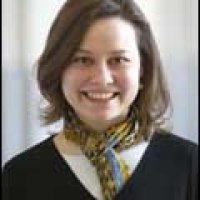Banning Headscarves in Bulgaria: Reflections on the Debate over Religious Symbols in Public Schools
In Europe, the issue of headscarves has the power to expose a variety of social cleavages because it instantly provokes strong stances on matters such as national identity, religion, gender and human rights. This issue also reflects the way in which states set priorities within the broad category of human rights they are obliged to protect. Through her analysis of headscarf bans in Bulgarian schools, Kristen Ghodsee illustrated how a young postcommunist democracy has attempted to create a coherent policy on headscarves while balancing its commitments to multiple constituencies in the US, its fellow EU member states as well as its own diverse population.
Ghodsee focused on two cases that were brought to the Bulgarian Parliament's Anti-Discrimination Commission. The first was brought by two girls who were expelled from a school in Smolyan for wearing headscarves. The school's decision was upheld by the Commission, which reasoned that because the school enforced a uniform and that uniform did not include a headscarf, the girls violated the code and were legitimately expelled. The second case was brought by three tenth graders who wore headscarves to school and objected to the verbal order issued by the state prohibiting ostentatious religious symbols in schools. In several other instances, girls were expelled because of this ban, but because the three girls who brought the case to the Commission had not been expelled, their case was dismissed.
The Commission's decisions, which focus on codes and process rather than elucidate a clear stance on the role of Islam in society, belie the multitude of competing principles based on freedom of religion, preservation of culture, non-discrimination and the protection of women. Throughout its transition to democracy, Bulgarian leaders have endeavored to follow the norms and practices of the West, but as is the case with many human rights issues, the headscarf question has been too contentious to produce a unified position in the West. For instance, in Europe, headscarves are seen as inherently discriminatory, which has led some countries to ban headscarves in state schools, a decision which was upheld by the European Court of Human Rights. In the United States, by contrast, freedom of religion is placed above other concerns, such as women's rights. The decisions of the Commission, according to Ghodsee, reflect Bulgaria's desire to negotiate between these two positions.
Ghodsee's research centers on addressing the following questions: Is the headscarf oppressive?; Why do women and girls wear them?; And is this choice made freely? Taking an ethnographic approach, Ghodsee interviewed a variety of women in Bulgaria, as well as the religious leaders of Muslim communities. Her findings suggest that the discourse revolves around the fact that the headscarf is a dogma, rather than a symbol of Islam, and, as such, is imposed on women by the faith. However, the decision to be devout is certainly an individual choice. Ghodsee's ethnographies allow her to expose the intricate ways in which women in Bulgaria assert their social power by choosing to wear headscarves, or not. Therefore, far from passive acquiescence, women wear headscarves for a wide array of reasons: ranging from the protection they provide through the association with a community, to the attention they command within the wider culture. Moreover, in what has been a turbulent transition to democracy and market economy, some women have embraced Islam in order to combat social ills and restore order.
Christian F. Ostermann, Director, European Studies.
Speakers
Assistant Professor, Gender and Women's Studies, Bowdoin College

Hosted By

Global Europe Program
The Global Europe Program is focused on Europe’s capabilities, and how it engages on critical global issues. We investigate European approaches to critical global issues. We examine Europe’s relations with Russia and Eurasia, China and the Indo-Pacific, the Middle East and Africa. Our initiatives include “Ukraine in Europe”—an examination of what it will take to make Ukraine’s European future a reality. But we also examine the role of NATO, the European Union and the OSCE, Europe’s energy security, transatlantic trade disputes, and challenges to democracy. The Global Europe Program’s staff, scholars-in-residence, and Global Fellows participate in seminars, policy study groups, and international conferences to provide analytical recommendations to policy makers and the media. Read more
